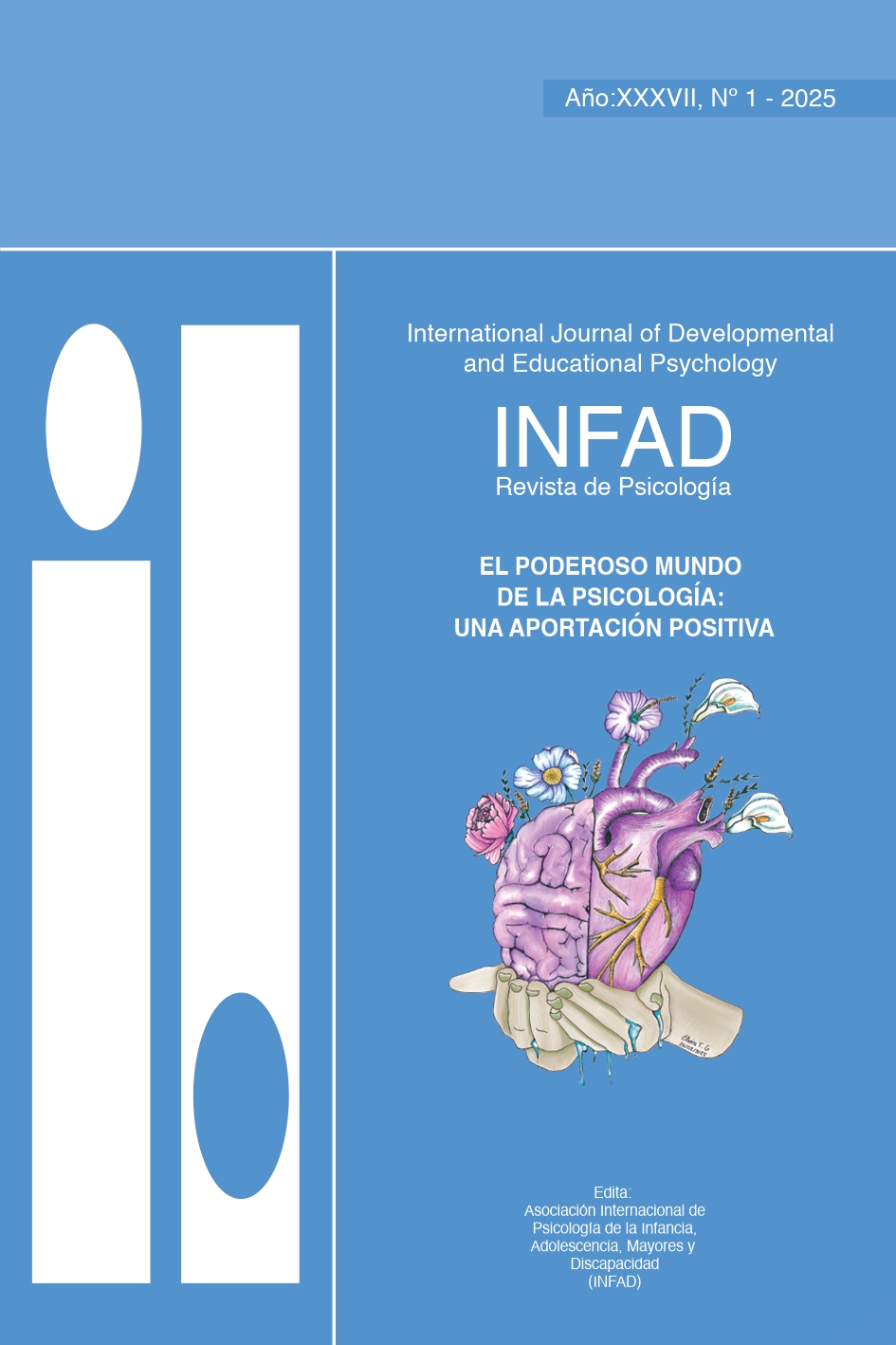Evaluation of the autonomy of students with intellectual disabilities in the shool context
Main Article Content
Abstract
Autonomy is a progressive process that can and should be fostered from childhood, respecting each individual’s unique pace. Assessing and strengthening adaptive skills are essential to identifying support needs and implementing interventions that promote the independence of individuals with intellectual disabilities (ID). Thus, promoting the autonomy of students with ID is one of the most significant challenges in contemporary inclusive education. Autonomy is a gradual, contextualized process that depends on social mediation. This study aimed to evaluate the levels of support necessary for the development of autonomy in students with ID, as well as to analyze pedagogical practices developed based on these data. The research was conducted with three public school teachers who work with students with ID, using two questionnaires and individualized pedagogical practices designed and implemented by the participants. The results indicate that adopting intentional and personalized practices supports the development of adaptive skills and enhances students’ self-determination. The data analysis reveals significant progress in the evaluated dimensions, suggesting that planning based on students’ real needs is a promising path toward fostering autonomy in the school context. Promoting autonomy is an inalienable right of students and represents an ethical, political, and pedagogical challenge for education professionals.
Article Details
Section

This work is licensed under a Creative Commons Attribution-NonCommercial-NoDerivatives 4.0 International License.
Attribution — You must give appropriate credit, provide a link to the license, and indicate if changes were made. You may do so in any reasonable manner, but not in any way that suggests the licensor endorses you or your use.
NonCommercial — You may not use the material for commercial purposes.
NoDerivatives — If you remix, transform, or build upon the material, you may not distribute the modified material.

This work is licensed under a Creative Commons Attribution-NonCommercial-NoDerivatives 4.0 International License
How to Cite
References
ADMESTRELA (2025). Modelo de Apoio à Vida Independente . Disponível em: https://www.admestrela.pt/mavi-modelo-de-apoio-a-vida-independente/
Ainscow, M., Booth, T., & Dyson, A. (2006). Improving schools, developing inclusion. Routledge.
Alles, E. P. (2024). Formação continuada EAD para professores: Desenvolvimento da autonomia de estudantes com deficiência intelectual [Tese de doutorado, Universidade Federal do Paraná]. Acervo Digital da UFPR. https://acervodigital.ufpr.br/handle/1884/39798
American Association on Intellectual and Developmental Disabilities – AAIDD (2021). Intellectual Disability: Definition, Diagnosis, Classification, and Systems of Supports. 12th ed. Washington: AAIDD.
American Psychiatric Association - APA (2014). Manual Diagnóstico e Estatístico de Transtornos Mentais: DSM-5. 5. ed. Porto Alegre: Artmed.
Bardin, L. (2016). Análise de Conteúdo . São Paulo: Edições 70.
Batista, L. A. M.; Shimazaki, M. (2023). Práticas docentes inclusivas e formação continuada: desafios e perspectivas. Revista Brasileira de Educação Especial , v. 29.
Bosa, C. A. (2002). Habilidades sociais e transtornos do desenvolvimento: perspectivas teóricas e educacionais . Porto Alegre: Artmed.
Campos, R.; Souza, D. R. (2022). Ensino responsivo e inclusão escolar: mediação, vínculo e intencionalidade. Curitiba: Appris.
Deci, E. L., & Ryan, R. M. (2000). The “what” and “why” of goal pursuits: Human needs and the self-determination of behavior. Psychological Inquiry, 11 (4), 227–268. https://doi.org/10.1207/S15327965PLI1104_01
Deci, E. L.; Ryan, R. M. (2017).Self-Determination Theory: Basic Psychological Needs in Motivation, Development, and Wellness. New York: Guilford Press.
Declaração de Washington (1999). Declaração de Washington sobre vida independente. https://abres.org.br/wp-content/uploads/2019/11/declaracao_de_washington_de_21_a_25_09_1999.pdf
Fonseca, V. (1995). Psicopedagogia da Aprendizagem: Diagnóstico e Intervenção . Porto Alegre: Artes Médicas.
Mendes, E. G. (2006). A inclusão de alunos com necessidades educacionais especiais: o papel da formação de professores. Revista Educação Especial , 19(30), 47–60.
Minayo, M. C. S. (2022). O desafio do conhecimento: Pesquisa qualitativa em saúde (15ª ed.). Hucitec.
Navas, P., Verdugo, M. A., & Gómez, L. E. (2020). Promoting adaptive behavior in intellectual disability: Evidence-based interventions. Journal of Intellectual & Developmental Disability, 45 (1).
Pletsch, M. D. (2017). Formação de professores e educação inclusiva: o desafio da aprendizagem na diversidade. Educação & Sociedade, 38 (140), 37–53. https://doi.org/10.1590/es0101-73302017165978
Sassaki, R. K. (2005). Inclusão: acessibilidade no lazer, trabalho e educação . Goiânia: UFG.
Schalock, R. L. et al. (2021). The Role of Context in the Support Model for People with Intellectual and Developmental Disabilities. Journal of Policy and Practice in Intellectual Disabilities, v. 18, n. 1 .
Shogren, K. A., Wehmeyer, M. L., Palmer, S. B., Rifenbark, G. G., & Little, T. D. (2015). Relationships between self-determination and postschool outcomes for youth with disabilities. The Journal of Special Education, 48 (4), 256–267. https://doi.org/10.1177/0022466913489733
Souza, T. F.; Rosa, D. H. (2021). Ensino de habilidade adaptativa de vida doméstica a adultas com deficiência intelectual. UFSCar. https://www.tcceesp.ufscar.br/arquivos/tccs/pdf_calderan-2018-_ensino-de-habilidade-adaptativa_vida-domestica_adultas_deficiencia-intelectual.pdf.
Torres, M. (2017). A autodeterminação de adolescentes e adultos com dificuldades intelectuais e desenvolvimentais. Lisboa: Universidade de Lisboa. https://repositorio.ulisboa.pt/bitstream/10400.5/10547/1/Tese%20final%20-%20Manuel%20Torres.pdf.
Vygotsky, L. S. (2000). A formação social da mente . 7. ed. São Paulo: Martins Fontes.
Wehmeyer, M. L., Shogren, K. A., Palmer, S. B., Williams-Diehm, K. L., Little, T. D., & Boulton, A. (2012). The impact of the Self-Determined Learning Model of Instruction on student self-determination. Exceptional Children, 78 (2), 135–153. https://doi.org/10.1177/001440291207800201
Wehmeyer, M. L. et al. (2017a). Promoting Self-Determination in Students With Developmental Disabilities.
Wehmeyer, M. L. et al. (2017b). Development of Self-Determination and Autonomy in Adolescents with Disabilities.
Wehmeyer, M. L. et al. (2017c). A Practical Guide to Teaching Self-Determination . 2nd ed. Baltimore: Paul H. Brookes Publishing.

